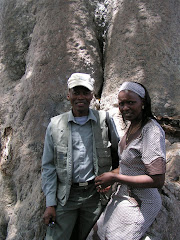Birth Registration is a child’s important step towards accessing essential services..
The United Nations Convention on the Rights of the Child provides that a child has a right to a name and a nationality. The Convention provides for the registration of a child immediate after birth. It is unfortunate that in 2006, births around 15 million children went unregistered.
Birth registration is one of the fundamental rights of children and is a prerequisite to fulfilling other human rights and access to essential services. This includes access to education, health care, and protection from child labor, child marriage, underage military service, child trafficking, and harassment by police.
Civil registration is of utmost importance for both states and individuals affected by HIV and AIDS. In 2006, 36 % of the 51 million children who born have not had their birth registration were found in Sub-Saharan Africa. Sub-Saharan Africa also has the highest HIV prevalence rate in the world and the number of children orphaned by AIDS in this region is projected to keep increasing.
A child’s birth certificate may ensure success to key HIV prevention, treatment, care and support services, such as health care, education and other services. A parent’s death certificate is of equal critical importance for the child’s right to inheritance and properly to be protected. A child with a birth certificate “has so many chances… It will be very good for that child” (focus group discussion with HIV positive parents, Mukujju health Centre, Uganda, August 2008).
The Committee of United nations Convention on the Rights of the Child (2008) General Comment No. 3: HIV/AIDS and the rights of the child said:
“The committee wishes to emphasize the critical implications of proof of identity for children affected by HIV/AIDS as it relates to securing recognition as a person before the law, safeguarding the protection of rights, in particular to inheritance, education, health and other social services… In this respect birth registration is critical to ensuring the rights of the child and is also necessary to minimize the impact of HIV/AIDS on the lives of affected children”.
A strong civil registration system also helps policy and decision-makers meet the challenges of HIV/AIDS by planning the appropriate scale of budget allocations and distribution of prevention, treatment, care and support services. Such systems keep track of AIDS IN terms of the total number of AIDS-related deaths, the survival rate of those on ART and the number of children affected and orphaned by the pandemic.
The data compiled by birth and death registration further provides the foundation for achieving the Millennium Development Goals (MDG), such as MDG 4, reducing child mortality, and MDG 6, combating HIV/AIDS.
Subscribe to:
Post Comments (Atom)











No comments:
Post a Comment